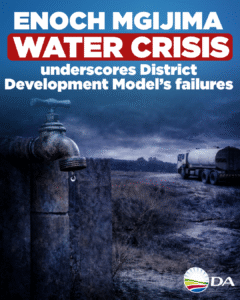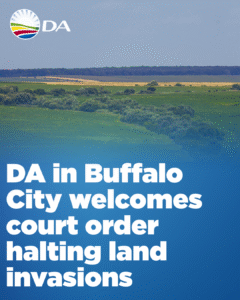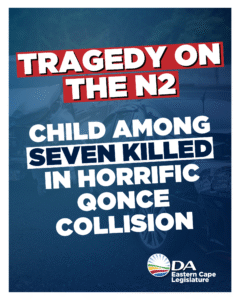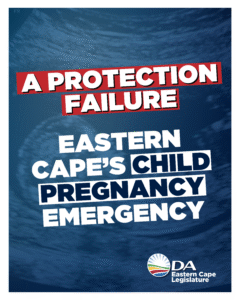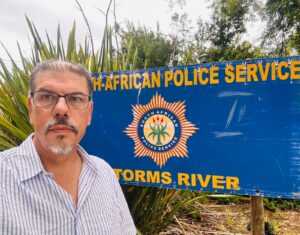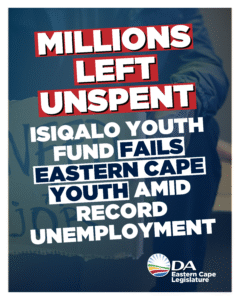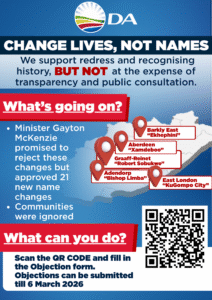Note to Editors: Please find attached sound clips in English by Cllr Masixole Zinto and Afrikaans by Retief Odendaal, MPL.
The ANC-led administration of Nelson Mandela Bay have allowed the local State of Disaster declaration in relation to the drought to lapse as Day Zero approaches, and the combined dam levels servicing the Metro drop to 23% of capacity.
The local State of Disaster was only declared in November 2019, and the Disaster Management Act stipulates that such a declaration lapses after three months, after which the municipality must extend the declaration on a month to month basis.
This means that the November Declaration would have expired in February already and no extension has been gazetted.
The disaster declaration is necessary to apply for funding from the provincial or national government.
I have now written to the Acting Executive Mayor, Cllr Tshonono Buyeye, and requested feedback on why the local State of Disaster has not been extended, as the Metro stands to lose substantial drought funding if this has not happened. If the Metro is not in a State of Local Disaster it will make it impossible to apply for relief funding from the national government.
The latest recorded figures, on Monday, show that the NMB dam levels were at: Kouga 14.58%, Churchill 73.62%, Impofu 16.55%, Loerie 19.96% and Groendal 38.75%. The total combined level of the dams is 23.77%, down from over 28% in February.
It is also extremely concerning that, despite the rapidly diminishing water supplies, the Metro has not been proactive in dealing with water leaks or other water-saving measures.
Instead, Member of the Mayoral Committee (MMC) for Infrastructure and Engineering, Cllr Andile Lungisa, has stated in the media that the Covid-19 pandemic sweeping through the country has severely hampered the Metro’s ability to fix water leaks and that because of the national lockdown, which started on 27 March 2020, water usage at homes have increased.
The fact is that additional plumbers could have been appointed in February already, long before the lockdown. The argument that water consumption in households has increased, is mitigated by the fact that water consumption at local businesses, who have been forced to close their doors during the lockdown, would have decreased.
It is clear that MMC Lungisa will use any excuse available to him, rather than take proactive measures to address the issue. His argument that the Metro is in trouble if dam levels drop below 16% is extremely short-sighted. The Metro is in trouble now, by the time it hits 16% it will be too late!
I’ve also requested the Mayor to give clarity on the lack of progress in spending the R200 million in drought aid, which NMB now stands to forfeit and to provide the Metro’s current rate of daily water consumption.
It is vital that the administration updates water consumption billboards that were erected across the Metro. The information on these billboards is outdated and does not serve to inform the public of the current dire water situation.
The ongoing drought in the Eastern Cape is plaguing a number of municipalities in the province.
In spite of this, the Provincial State of Disaster has also been allowed to lapse. This means the Eastern Cape stands to lose more than R600 million in relief-funding if the provincial government does not extend its Provincial State of Disaster declaration.
This funding could be crucial to NMB, as the Metro would be able to apply for assistance from this relief-funding.
The DA’s Eastern Cape Shadow MEC for Finance, Retief Odendaal, MPL, has, therefore, written to the Premier of the Eastern Cape, Oscar Mabuyane, and requested him to urgently intervene and extend the Provincial State of Disaster.
The Metro and the province simply cannot afford to run out of water while Covid-19 cases are on the rise, as proper sanitation is of the utmost importance in the effort to save lives.
